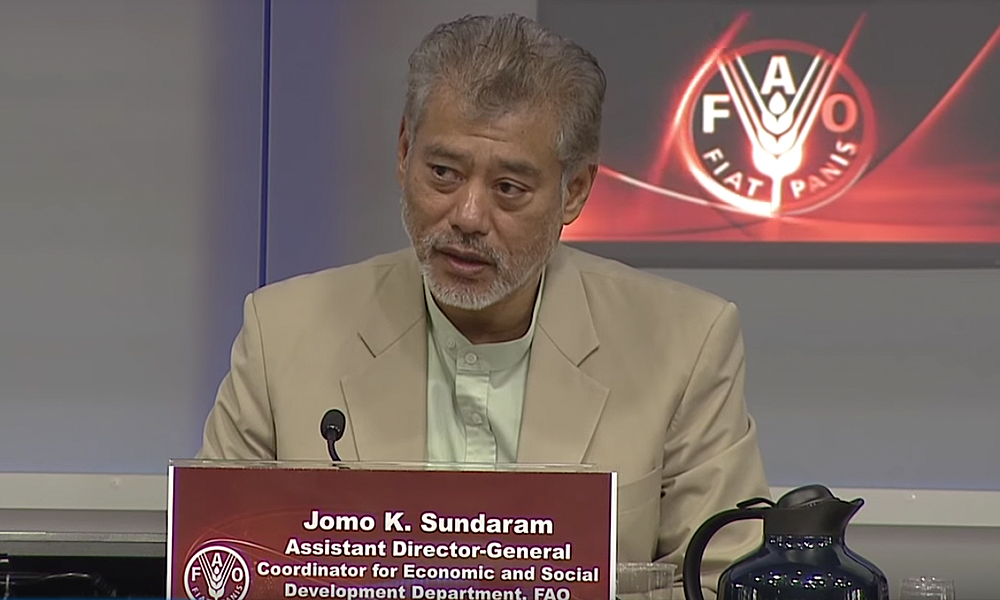Institute for Democracy and Economic Affairs (Ideas) CEO Wan Saiful Wan Jan has reportedly disputed economist Jomo Kwame Sundaram's analysis of the Trans-Pacific Partnership Agreement (TPPA).
According to a report published in the New Straits Times today, Wan Saiful said the UN Global Policy Model (GPM) used in Jomo's analysis was flawed.
“ In the academic sense, the GPM is not strong as it excludes information at the sector-level and data on tariffs. The model cannot calculate the impact of tariff reduction, yet TPP can reduce tariff,” he is quoted as saying.
Wan Saiful was responding to Jomo's assessment at a forum in Kuala Lumpur last week that the TPPA would only bring marginal benefits to Malaysia and that too, at a heavy price.
 Among others, Jomo (
photo
) predicted the TPPA would cause GDP losses for some countries (but not for Malaysia) while other developed countries would have only one percent growth over 10 years, with other developing countries registering three percent.
Among others, Jomo (
photo
) predicted the TPPA would cause GDP losses for some countries (but not for Malaysia) while other developed countries would have only one percent growth over 10 years, with other developing countries registering three percent.
All 12 participating countries would have employment losses totalling 771,000 jobs as well as greater inequality.
Jomo also criticised the Computable General Equilibrium (CGE) model used in some other TPPA analyses, saying that the GPM model was more realistic.
He said the GPM was better, as it accounted for the effects on employment and inequality and their impacts on economic growth.
Wan Saiful also rebutted Jomo's claim that Thailand and Philippines were disinterested in signing the TPPA.
He is quoted as saying that both countries have already expressed interest in the trade pact but were faced with internal issues.
“ Thailand was beset with a military coup, while the Philippine constitution has a clause that prohibits foreigners from owning companies there,” he said.
Smaller population
As for Indonesia which Jomo suggested may have pulled out of the TPPA due to economic nationalism and a recent change in government, Wan Saiful countered that Indonesia could afford to do so because of its larger population.
“ Their domestic market is strong enough to support their economy as opposed to Malaysia, which must depend on trade because of its smaller population,” Jomo said.
Malaysia's population size is estimated at about 30 million compared with Indonesia's 255 million.
The Malaysian Parliament is due to debate the controversial trade agreement beginning Tuesday next week and if approved, the government is expected to sign the agreement in February.
After that, there is a two-year ratification period for Malaysia to bring its laws and policies in line with the agreement.
Apart from Malaysia, other countries involved in the TPPA are the United States, Singapore, Brunei, Vietnam, Japan, Canada, Mexico, Peru, Chile, New Zealand, and Australia.

